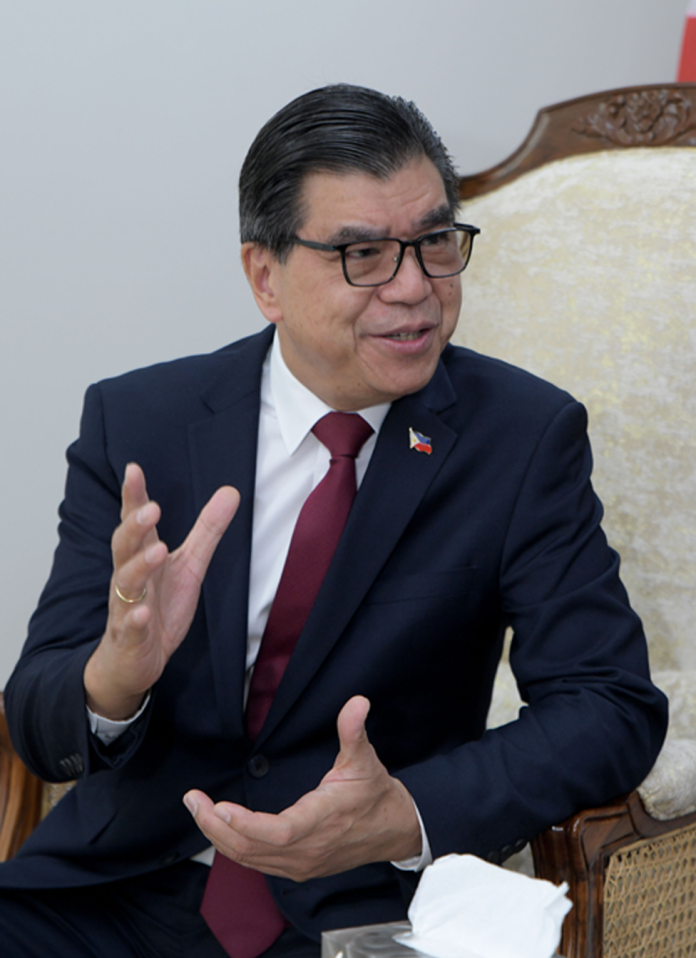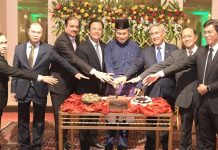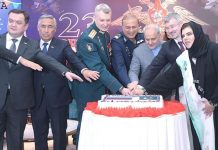Ansar Mahmood Bhatti
ISLAMABAD: In an exclusive conversation with Daily Islamabad Post, CENTRELINE magazine, and the Diplomatic News Agency, H.E. Dr. Emmanuel R. Fernandez, Ambassador of the Philippines to Pakistan, outlined a comprehensive roadmap for strengthening Pakistan’s engagement with the Association of Southeast Asian Nations (ASEAN).
Dr. Fernandez highlighted that ASEAN–Pakistan relations are evolving from aspirational dialogue to practical cooperation, covering areas from trade and economics to education and cultural exchange. He noted that the timing is crucial, given ASEAN’s 58th anniversary and growing momentum in regional partnerships.
“The Philippines, as a founding ASEAN member and as an active partner in Pakistan, sees real potential in deepening ties,” he said. “This partnership is about shared values and the recognition that regional cooperation is vital to meeting global challenges.”
The Ambassador underlined the importance of ASEAN centrality in regional frameworks such as the ASEAN Regional Forum (ARF). Pakistan, he stressed, has been a consistent contributor since joining ARF in 2004. At the 32nd ARF Ministerial Meeting in Kuala Lumpur in July 2025, Pakistan’s Deputy Prime Minister and Foreign Minister reaffirmed the country’s commitment to preventive diplomacy, rule of law, and addressing emerging non-traditional security threats including climate change, cyber risks, pandemics, and maritime challenges.
“Pakistan’s active engagement at the ARF signals its readiness to shift from dialogue to deeper, action-oriented cooperation,” Dr. Fernandez observed.
On concrete steps Pakistan can take to enhance its ASEAN partnerships, the Ambassador pointed to a multi-dimensional strategy. This includes sector-specific agreements under the Special Investment Facilitation Council (SIFC), particularly in digital trade, renewable energy, halal food, and logistics. He cited the Vietnam–India model as an example of starting with small but focused cooperation agreements and then expanding into larger sectors like defense and joint ventures.
He also underscored economic complementarities: “Pakistan’s textile and halal-certified products align strongly with ASEAN’s import needs. There is scope to integrate Pakistani textiles into the Philippine garment export chain, and a halal trade agreement could open up new markets through aligned standards and joint trade missions.”
Education and human capital exchanges remain another priority. Expanding opportunities in medicine, engineering, and IT for ASEAN students in Pakistan, he said, would build long-term goodwill and strengthen people-to-people ties.
The Ambassador suggested institutional mechanisms such as establishing an ASEAN-focused center in Islamabad and launching a Pakistan–ASEAN Business Forum, modeled on successful ASEAN+ dialogues with countries like Japan. Similarly, engaging private sector players—from established chambers of commerce to emerging business alliances—would ensure a broad-based and sustainable approach to integration.
Turning to bilateral relations between the Philippines and Pakistan, Dr. Fernandez described them as historically friendly, dating back to 1949. “We have a solid foundation in diplomacy and multilateral collaboration. Recent momentum, including active ambassadorial exchanges and regular policy consultations, shows a shared intent to move forward,” he said.
While acknowledging that bilateral trade is modest and tilted in Pakistan’s favor, he pointed to promising sectors such as textiles, agribusiness, pharmaceuticals, and IT. Real progress, he suggested, would come from initiatives like improving logistics, aligning regulations, and promoting targeted trade facilitation.
“Relations between our two countries are on a stable footing,” he concluded. “The task now is to translate goodwill into concrete economic and development partnerships. The Philippines stands ready to work with Pakistan and ASEAN partners to build a cooperative, prosperous, and peaceful Indo-Pacific region.”

















